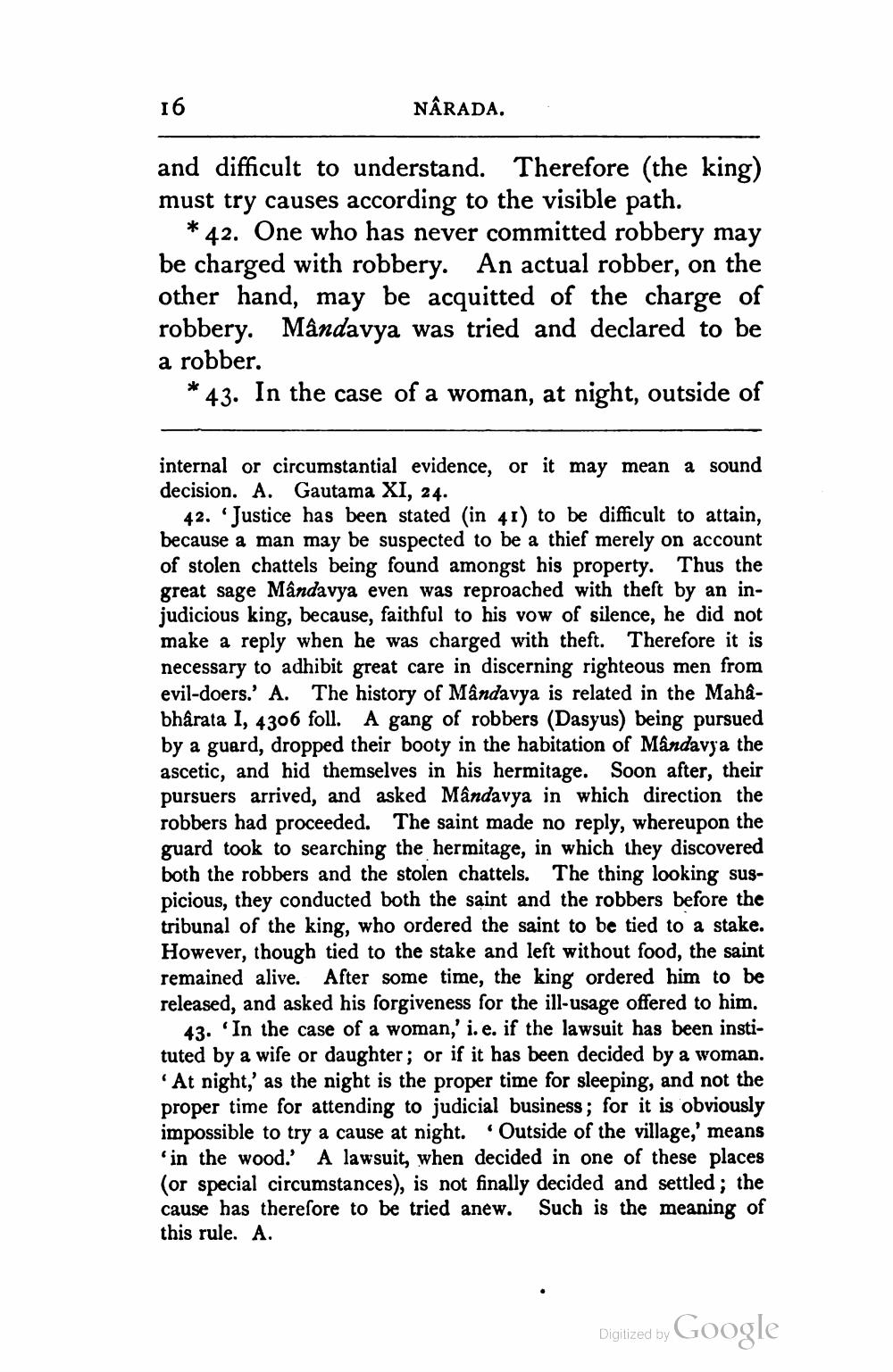________________
16
NARADA.
and difficult to understand. Therefore (the king) must try causes according to the visible path.
* 42. One who has never committed robbery may be charged with robbery. An actual robber, on the other hand, may be acquitted of the charge of robbery. Mândavya was tried and declared to be a robber.
*43. In the case of a woman, at night, outside of
internal or circumstantial evidence, or it may mean a sound decision. A. Gautama XI, 24.
42. Justice has been stated in 41) to be difficult to attain, because a man may be suspected to be a thief merely on account of stolen chattels being found amongst his property. Thus the great sage Mândavya even was reproached with theft by an injudicious king, because, faithful to his vow of silence, he did not make a reply when he was charged with theft. Therefore it is necessary to adhibit great care in discerning righteous men from evil-doers.' A. The history of Mandavya is related in the Mahabhârata I, 4306 foll. A gang of robbers (Dasyus) being pursued by a guard, dropped their booty in the habitation of Mandavya the ascetic, and hid themselves in his hermitage. Soon after, their pursuers arrived, and asked Mândavya in which direction the robbers had proceeded. The saint made no reply, whereupon the guard took to searching the hermitage, in which they discovered both the robbers and the stolen chattels. The thing looking suspicious, they conducted both the saint and the robbers before the tribunal of the king, who ordered the saint to be tied to a stake. However, though tied to the stake and left without food, the saint remained alive. After some time, the king ordered him to be released, and asked his forgiveness for the ill-usage offered to him.
43. 'In the case of a woman,' i.e. if the lawsuit has been instituted by a wife or daughter; or if it has been decided by a woman.
At night,' as the night is the proper time for sleeping, and not the proper time for attending to judicial business; for it is obviously impossible to try a cause at night. Outside of the village,' means ‘in the wood. A lawsuit, when decided in one of these places (or special circumstances), is not finally decided and settled; the cause has therefore to be tried anew. Such is the meaning of this rule. A
Digitized by Google




